Sample Job Proposals
-
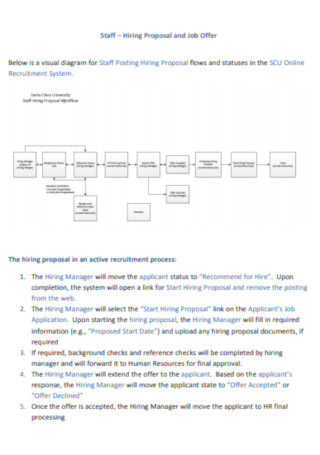
Staff Hiring Proposal and Job Offer
download now -
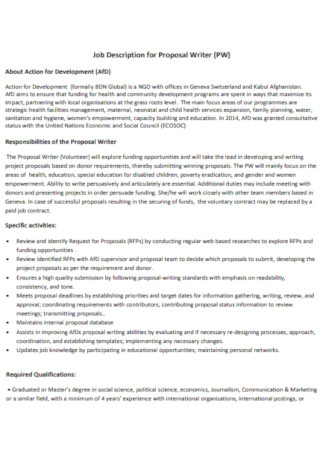
Job Description for Proposal Writer Template
download now -
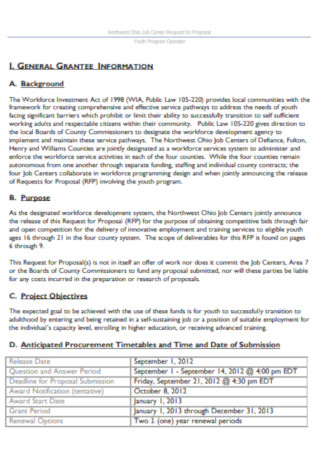
Job Center Request for Proposal
download now -
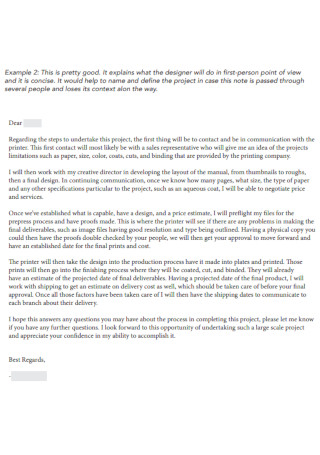
Job Proposal letters
download now -
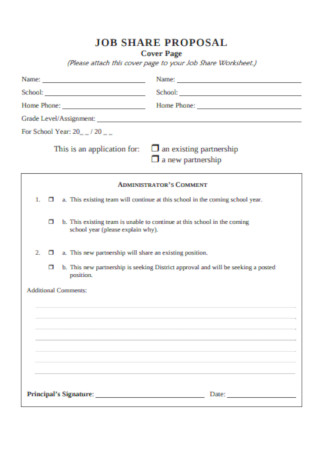
Sample job Share Proposal Template
download now -
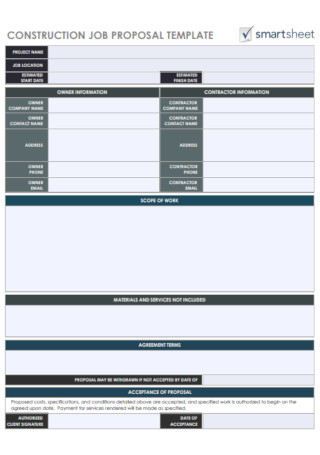
Construction job Proposal Template
download now -
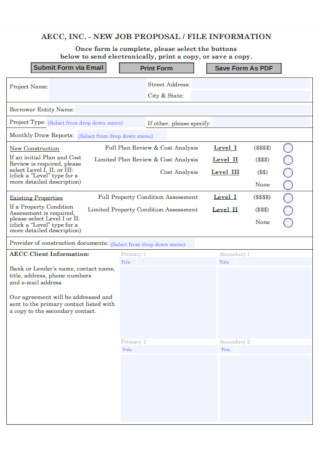
New job Proposal and File Information Template
download now -
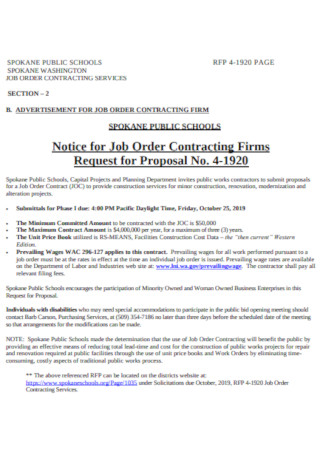
Job Order Contracting Firms proposal Template
download now -
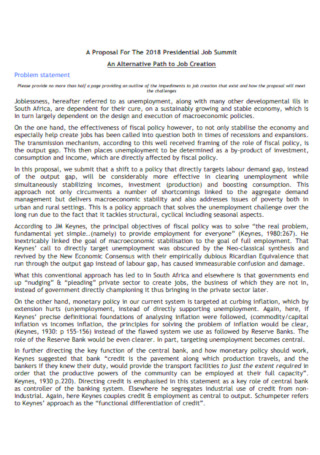
Presidential Job Summit Proposal Template
download now -
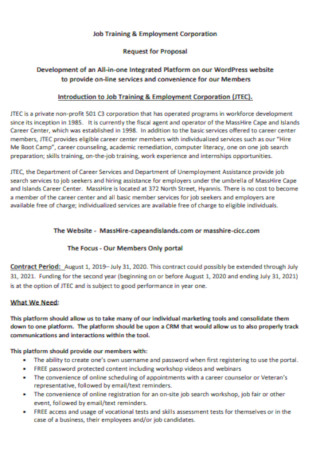
Job Training Request for Proposal
download now -
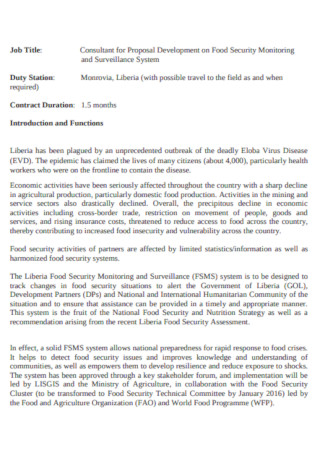
Food Security job Proposal Template
download now -
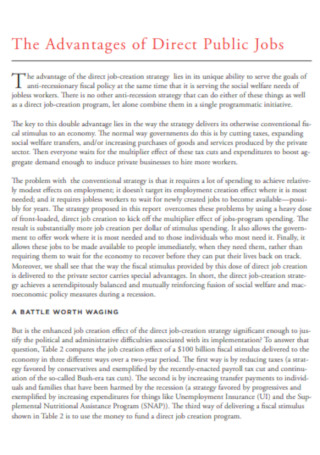
Sample Public Job Proposal Template
download now -
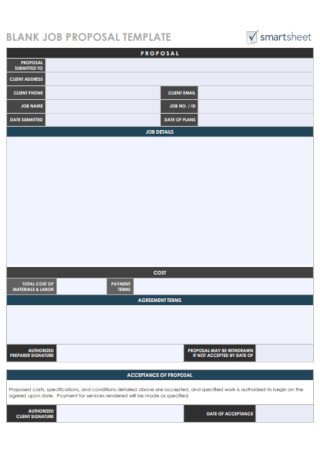
Blank job Proposal Template
download now -
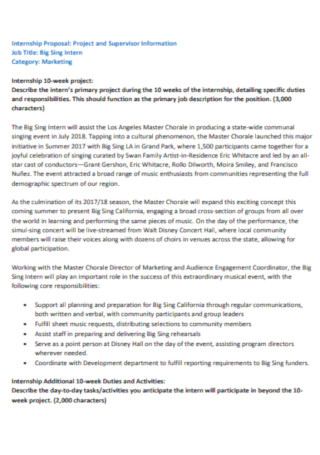
Internship Job Proposal Template
download now -
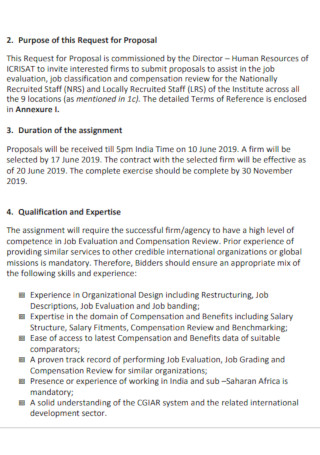
Sample Job Evaluation Template
download now -
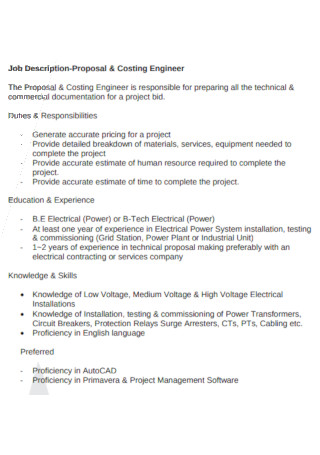
Engineer Job Description-Proposal
download now -
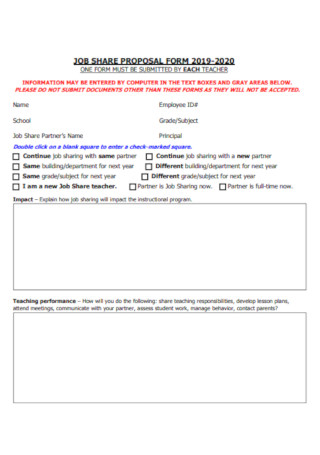
Sample job Share Proposal Form Template
download now -
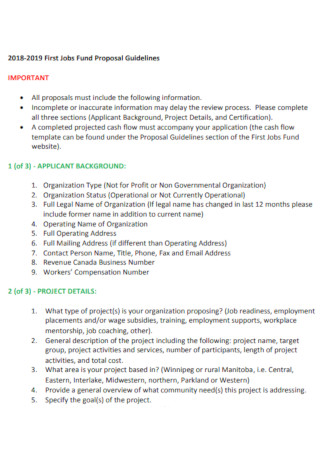
First Jobs Fund Proposal Template
download now -
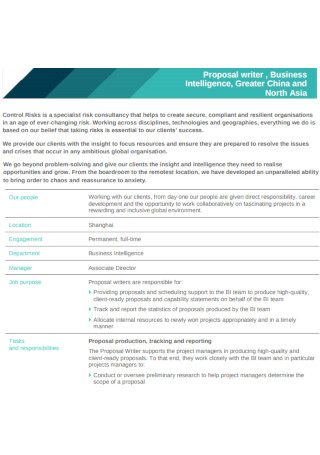
Business job Proposal Template
download now -
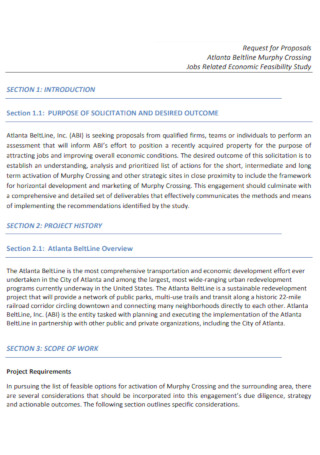
Standard job Proposal Template
download now -
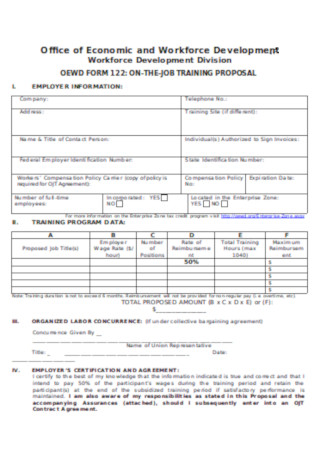
Sample On the Job Training Proposal Template
download now -
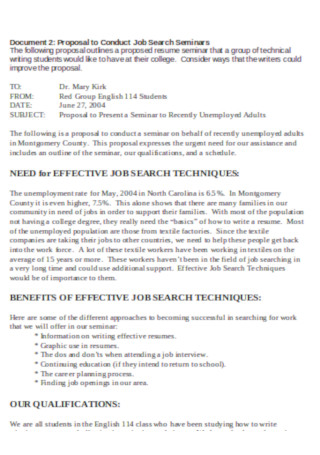
Proposal to Conduct Job Search Seminars
download now
What Is a Job Proposal?
A job proposal is a three- to six-page document that explains why you are a good match for a position. In contrast to a cover letter, it is generally not part of the formal application procedure. Instead, it is something you compose and share with the hiring manager or another contact you’ve made at the company, either to get your foot in the door or to secure a position after a series of interviews. You can also use this method if a company already employs you and wish to transition laterally, be promoted, or propose an entirely new role.
Benefits of a Job
Jobs offer numerous advantages that can improve your quality of life and advance your career. These advantages vary from providing stability and financial security to acquiring new skills and developing a sense of purpose. Learning about the various advantages of employment can motivate you to seek employment or increase your appreciation for your current position. This article lists the benefits of having a job and offers advice on locating the right one. When deciding whether to remain in your current place, pursue a new opportunity, or take a leave of absence, consider the various perks of a job. Here are some advantages to consider:
Tips for Writing a Proposal
As a professional, your employer or client may ask you to prepare a sample proposal. Although proposals can take various forms, they all aim to address a particular issue by providing suggestions or ideas. If you know how to write an outstanding proposal, you can make a difference by resolving problems and concerns within your organization or with your client. Knowing how to compose a proposal lets you make professional suggestions to clients or your employer. If you wish to construct a proposal, it is crucial to understand how to do so correctly. This can enhance the impact of your proposal and increase the likelihood that your intended audience will approve it. To compose a practical proposal, observe the following steps:
1. Prepare a Proposal
Before composing a proposal, it is essential to plan to ensure it meets the client’s expectations. The planning phase entails determining the type of proposal you are writing, identifying your intended audience, and developing a suitable framework to guide your writing. Before submitting a proposal, you typically conduct a requirements analysis, which entails research and a meeting to identify the potential client’s pain points. The form of proposal you are developing can assist you in ensuring that it meets your needs. You can determine whether you are composing a solicited, unsolicited, or informal proposal.
2. Create a Suitable Introduction
After creating a proposal summary, you can start writing your proposal. Create a captivating introduction to captivate your intended audience. Remember that your proposal serves a purpose and offers information that your reader may still need to possess. To achieve this, provide context explaining why this issue is significant and why you want to address it as soon as feasible. To set the tone for the remainder of your proposal, explicitly state your proposal’s justification in the introduction.
3. Define the Issue
The issue or problem you, your business, or your client are experiencing should be stated in the proposal’s body. Specify not only the issue but also its root cause. Discussing potential outcomes is also a good idea if the issue continues. Think about how it might impact your target audience because doing so might inspire them to act and accept your solutions. Use research-based information to address your plan’s problem, and ensure you cite reliable sources. This can help you convince your audience that your claims are valid.
4. Provide Solutions
Once your audience comprehends the issue, present them with potential solutions. Explain how you intend to approach the problem and why your proposed solutions are the best to consider. Your proposed solutions must broadly impact your audience for them to embrace the issues you’ve raised. It is essential that your audience finds your concepts valuable and accepts them. It is necessary to have confidence in your writing and convey the impression to your readers that you can adequately address the issue. The results of your investigation should be presented in the form of facts and examples to support your arguments. When you rely on facts rather than your opinion, you have a greater chance of persuading your audience without them assuming you have a hidden agenda.
5. Determine Your Proposed Budget and Schedule
Your audience also requires a timeline indicating when you intend to implement the proposed solution. Your intended audience must understand your financial goals for resolving the issue. Think about when you want the endeavour to start and when you want it to end. In addition, include as many specifics as possible and ensure that your proposed budget is realistic and falls within the budget that the organization or client is comfortable with.
6. Write a Conclusion
Finally, consider how you want to conclude your proposal for maximum impact. Typically, you want to concisely and unambiguously summarize the elements of your proposal that support the final purchase decision. This may involve reiterating fundamental principles and how they resolve the client’s issues. Consider adding an appendix to your proposal if it contains additional information. Though it is necessary to include a great deal of information, you should keep your proposal as concise as possible to increase the likelihood that your audience will read it.
How to Be a Proposal Writer
Many businesses rely on proposals to cultivate professional relationships and acquire new clients, and proposal writers are frequently the employees responsible for drafting these documents. If you have exceptional writing, investigation, and attention to element, a career as a proposal writer may appeal to you. Consider the following to advance your career as a proposal writer:
1. Get a Degree
Numerous proposal writers commence their careers by obtaining a bachelor’s degree. English, communications, and journalism are prevalent bachelor’s degrees held by proposal writers. Also, employers may prefer candidates with a master’s degree in one of the same disciplines. If you want to work in a field that requires specialized or technical knowledge, an employer may require you to complete relevant coursework.
2. Gain Employment Expertise
Many organizations prefer candidates with professional proposal writing experience. Aspiring proposal writers can look for internships or volunteer opportunities with non-profit organizations to learn how to prepare proposals and cultivate relationships with potential partners. Some candidates develop resumes by working as freelance proposal writers before applying to larger firms. Working as a technical writer or copywriter helps you develop the skills to become a proposal writer.
3. Compile a Portfolio
When applying for a position as a proposal writer, a portfolio can be one of your most effective tools. A portfolio is a collection of successful initiatives demonstrating your qualifications to potential employers. You may include any proposals, technical writing, or editing work you have completed during previous employment or apprenticeships.
4. Acquire a Certification
The Association of Proposal Management Experts is a group that certifies experts in proposal management, offers training and sets standards for the field. Approved by the APMP will help you stand out as a candidate to employers and may draw in clients. You must pass an online test to become certified by APMP, and they can offer study guides to ensure you are ready.
FAQs
What are the proposal details?
A proposal is a written statement describing a course of action or a treatment plan. It is a suggested strategy for a fresh project report, exemplary, or service.
What are proposal topics?
The primary purpose of the topic proposal is to map out an essay’s strategy. Its primary objective is to fixate on a stable theme, typically in the form of a thesis statement.
What are proposal keywords?
Funding agencies, examiners, and evaluators use proposal keywords to assess the significance and impact of your research project. In addition, they are used to match your proposal with the appropriate funding opportunities and programs.
If you have a strong proposal, landing new tasks might be easy, whether you’re a beginning freelancer or a seasoned professional. It will take a little while to secure the next job if your proposal is well-written, distinctive, and shows how you can help the customer. View the most recent job postings and begin applying right away!
